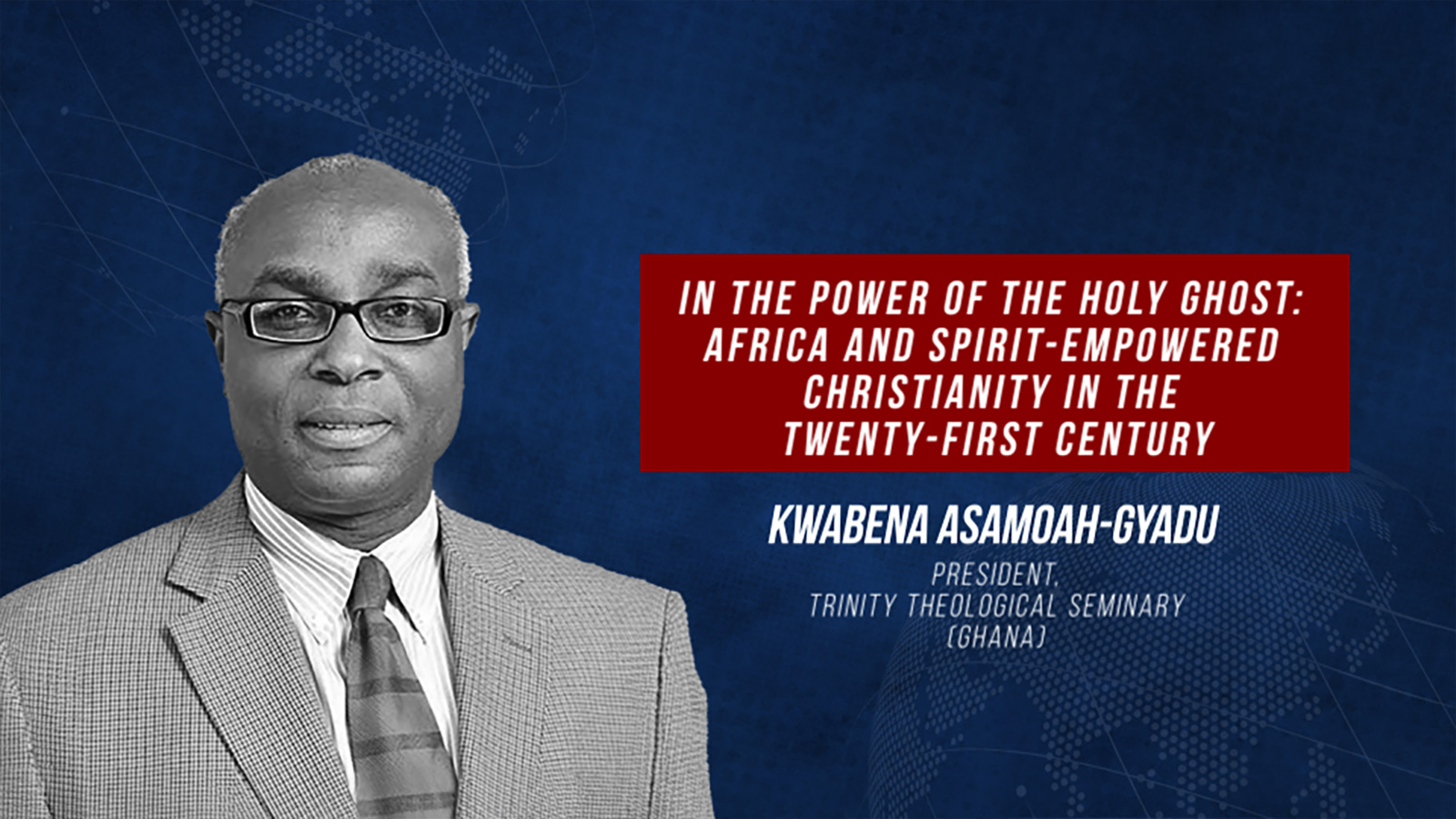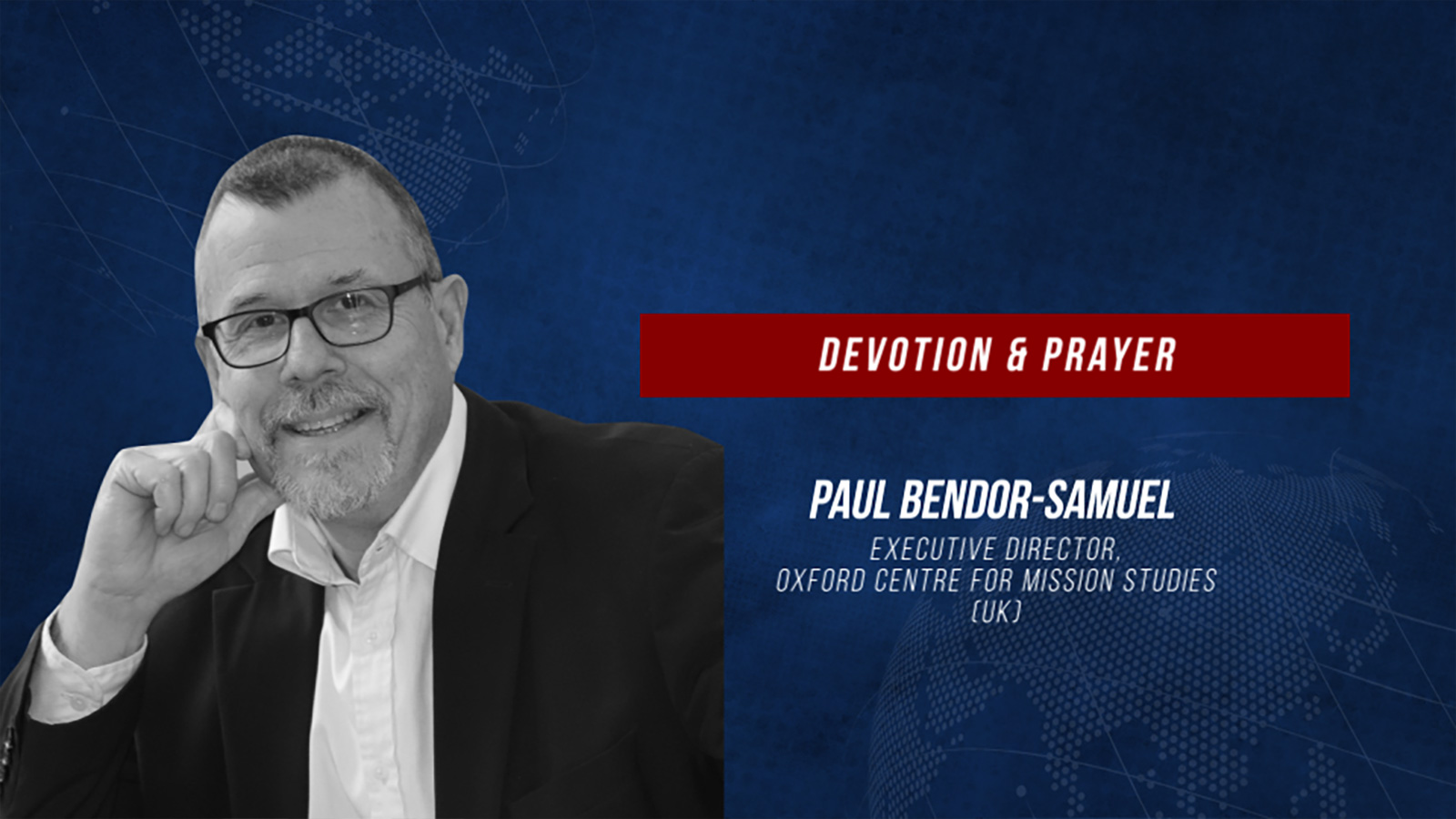President,
Trinity Theological Seminary

Kwabena Asamoah-Gyadu is a Ghanaian scholar of African Pentecostalism. He holds a Certificate in Pastoral Ministry from Trinity Theological Seminary in Ghana, BA in Religion and Sociology and MPhil in Religion from the University of Ghana, and PhD in Theology from the University of Birmingham. An ordained minister of the Methodist Church Ghana, he was elected fellow of the Ghana Academy of Arts and Sciences in 2015. He is currently the Baëta-Grau Professor of African Christianity and Pentecostal/Charismatic Theology at Trinity Theological Seminary, where he has held teaching posts since 1994. He has also been its president since 2018.
Dr Kwabena is known for his writings related to African Pentecostal and Charismatic Christianity, such as African Charismatics: Current Developments within Independent Indigenous Pentecostalism in Ghana (2004) and Contemporary Pentecostal Christianity: Interpretations from an African Context (2013). He has also been a visiting scholar at various institutions including Harvard University, Luther Seminary, and Asbury Theological Seminary.
This paper deals with Spirit-empowerment and the transformation of Christianity in Africa. Spirit-empowered Christianity is now the representative face of Christianity on the continent, and this has global implications. The enchanted African Pentecostal/charismatic formular “in the power of the Holy Ghost” is commonly used in situations needing divine interventions. Not only is the growth and dynamism of contemporary Pentecostalism explained in terms of “the power of the Holy Ghost”, but also it is in that power that Pentecostalism could be said to have spread and impacted the world. This paper explores the explosion of African Pentecostal Christianity and how it is reshaping spirituality beyond the continent today.
Many separate the atonement from Pentecost to the degree that the link between them is lost. I wish to explore that link. The link is based on the insight that the cross of Christ is not limited to Israel. Rather, Christ seeks at the cross to open his life to all peoples, redeeming persons “from every tribe, and language, and people, and nation” (Rev. 5:9) and breaking down the wall of hostility between them (Eph. 2:14-16). The Spirit is poured out on all peoples at Pentecost in loyalty to the cross and for the sake of the crucified and risen Christ.
Many separate the atonement from Pentecost to the degree that the link between them is lost. I wish to explore that link. The link is based on the insight that the cross of Christ is not limited to Israel. Rather, Christ seeks at the cross to open his life to all peoples, redeeming persons “from every tribe, and language, and people, and nation” (Rev. 5:9) and breaking down the wall of hostility between them (Eph. 2:14-16). The Spirit is poured out on all peoples at Pentecost in loyalty to the cross and for the sake of the crucified and risen Christ.
Many separate the atonement from Pentecost to the degree that the link between them is lost. I wish to explore that link. The link is based on the insight that the cross of Christ is not limited to Israel. Rather, Christ seeks at the cross to open his life to all peoples, redeeming persons “from every tribe, and language, and people, and nation” (Rev. 5:9) and breaking down the wall of hostility between them (Eph. 2:14-16). The Spirit is poured out on all peoples at Pentecost in loyalty to the cross and for the sake of the crucified and risen Christ.


Sign up for news & exclusive content
from Global Pentecostal Voices.
By subscribing, I agree to the Privacy Policy and Terms of Use.